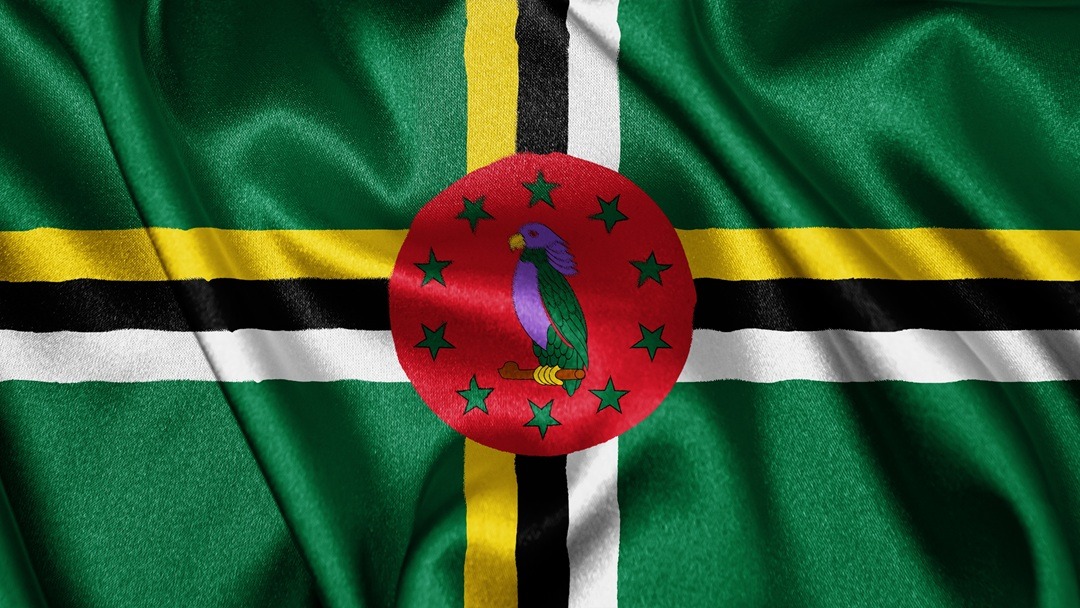How Secure Is Free Zone Offshore Banking in Pakistan?24 min read
Reading Time: 9 minutesWe will examine the issue of Secure Is Free Zone Offshore Banking in Pakistan in detail. Both individuals and businesses looking to manage their finances internationally are increasingly choosing offshore banking as their financial management solution.
Account owners who open offshore bank accounts in foreign jurisdictions obtain access to a broad array of international banking services.
When choosing offshore banking options security and regulatory oversight become primary issues to address.
Individuals and corporations now frequently choose offshore banking facilities to store assets securely outside their home countries. The growth of banking services leads to significant questions regarding security measures and regulation oversight.
Pakistan’s free zone offshore banking ensures security and compliance by implementing strong cybersecurity protocols alongside thorough compliance monitoring and due diligence procedures.
How Secure is Offshore Banking in Pakistan’s Free Zones?
The Pakistani government created multiple free trade zones and free economic zones since the 1980s to boost international trade and attract foreign investment.
Within specified zones offshore banking institutions such as The Kingdom Bank obtain licenses to operate under special regulations which serve non-resident clientele involved in international business operations.
Offshore banks operating inside free zones receive benefits from both tax exemptions and streamlined incorporation procedures to support offshore banking in Pakistan free zone for investments and international business operations.
Onboarding new clients requires offshore banks to satisfy rigorous Know-Your-Customer (KYC) and Anti-Money Laundering (AML) standards that align with worldwide banking regulations.
Regular inspections at bank sites evaluate adherence to prudential norms concerning capital adequacy as well as liquidity and financial reporting standards.
The regulatory framework offers account holders comprehensive protection. All client deposits and personal information remain protected under the strict bank secrecy laws of the free zone. Data encryption along with other cybersecurity measures serves to protect systems from online threats.
Biometric access control serves as a physical security measure which safeguards client assets and privacy at The Kingdom Bank branches located in Pakistan’s free trade zones.
What Regulations Govern Offshore Banking in Pakistan?
♦ Important Information : The Export Processing Zone Authority (EPZA) Act of 1980 serves as the main legislative framework for offshore banking activities within Pakistan’s export processing zones. This act created the legal basis for setting up and managing special economic zones.
The EPZA Act requires offshore banks to secure a license from the appropriate zone authority before starting banking operations for non-resident clients only.
The license prohibits banks from accessing the Pakistani Rupee market while permitting them to conduct operations solely with foreign currencies.
The zone authority’s rules for minimum capital requirements and annual financial audits apply to their operations.
♦ Important Information : The Banking Companies Ordinance of 1962 places offshore banks under the supervision of the State Bank of Pakistan (SBP) which functions as the central banking authority.
The zone authority operates as the main regulator but the SBP executes supervisory functions to guarantee offshore banks meet international financial standards.
The organization performs regular onsite evaluations and holds authority to enforce mandatory instructions on prudential norms including risk management and liquidity coverage.
The combination of the zone authority and SBP supervision creates a strong regulatory framework for licensed offshore banks such as The Kingdom Bank operating in Pakistan’s free trade zones.
Full compliance with zone rules and central bank regulations ensures the stability and integrity of Pakistan’s offshore banking sector.

Is Offshore Banking in Pakistan Protected by Local Financial Laws?
Licensed offshore banks operating within Pakistan’s free zones receive legal protections from the country’s legal system.
Licensed offshore banks in Pakistan’s free trade zones receive protection under local laws which ensures both financial institutions and international customers benefit from assured recourse and legal certainty.
Pakistan’s Contract Act of 1872 establishes the legal framework for the rights and obligations of offshore banks. This historical commercial statute regulates how legally binding agreements like account terms and loan contracts become enforceable.
Civil courts have jurisdiction to settle disputes under this codified common law system.
The Banking Companies Ordinance governs offshore bank deposits within the jurisdiction of Pakistan. The legislation defines the importance of banker-client relationships and protects client privacy.
The law provides banks with protected liability status and precedence above other creditors during insolvency proceedings.
Authorities governing free trade zones within special economic areas maintain independent civil and commercial legal courts.
The special tribunals established within special economic zones are proficient in resolving disputes that originate from business transactions and activities which are regulated by zone-specific rules. Pakistan’s legal system permits appeals to reach the Supreme Court when necessary.
The legal system in Pakistan offers licensed offshore banks such as The Kingdom Bank together with their international customers dependable legal recourse under established rule of law.
Cross-border banking transactions and investment activities gain enhanced security and reliability when they operate through the nation’s free economic zones.
How Does the State Bank of Pakistan Oversee Offshore Banking Security?
The State Bank of Pakistan (SBP) functions as the central bank responsible for protecting both the stability and integrity of Pakistan’s complete financial system including offshore banking operations within free trade zones.
The State Bank of Pakistan employs various principal tools such as:
- The SBP sets essential regulations for financial institutions which address key areas including capital adequacy standards and asset classification procedures. This policy establishes the fundamental standards necessary for safety and stability.
- The SBP’s Banking Supervision Department sends specialized examiners to carry out regular risk-based inspections of offshore banks. The assessment of legal and control compliance is carried out by them.
- The SBP monitors crucial risk indicators such as capital buffers, non-performing loans and large exposures by analyzing daily, weekly and quarterly bank returns. This system identifies initial indicators of financial instability.
- The SBP collaborates with banks to address deficiencies through improvement plans as well as restrictions and sanctions when necessary. The SBP reserves the right to revoke banking licenses as its last enforcement measure.
- The SBP’s Financial Stability Department works alongside various authorities to implement measures including liquidity support and bank resolution techniques to preserve financial stability during systemic issues.
The SBP uses these tools to track banking sector risks throughout Pakistan including banks operating off-shore in free trade zones.
The central oversight functions as a crucial element that protects both the stability and security of Pakistan’s offshore banking industry.
Are Deposits in Offshore Banking Accounts in Pakistan Insured?
Deposit insurance serves as crucial protection for account holders who face potential bank failures when evaluating security measures. The Deposit Protection Corporation provides insurance for deposits in Pakistani onshore banks to a certain maximum limit for each depositor.
Offshore banking accounts situated within Pakistan free zone offshore banking areas remain unprotected by direct deposit insurance.
Offshore banks which serve only non-resident clients operate outside the nation’s deposit insurance system.
Each offshore bank must either self-insure depositor funds or buy private insurance coverage to provide protection. Licensed financial entities such as The Kingdom Bank hold adequate capital and liquidity reserves to absorb potential losses for implicit deposit protection.
Periodic stress tests measure the financial institution’s capacity to return depositor funds even when facing extreme economic challenges.
Licensed offshore banks in Pakistan’s free trade zones benefit from comprehensive regulations and oversight that create a secure environment for international banking operations.
The Kingdom Bank and other specialized institutions maintain their integrity and safety for cross-border clients by strictly following global financial standards.
Discover how The Kingdom Bank supports your cross-border financial transactions with secure offshore accounts by reaching out to our representatives through this website.
Our representatives can provide details about our complete private, corporate and digital offshore bank services which cater to clients across the globe.

What Cybersecurity Measures Support Offshore Banking in Pakistan?
The Kingdom Bank operates exclusively online while understanding the essential role of cybersecurity in current digital business environments.
The bank has dedicated significant resources to build sophisticated security systems for the protection of client data and financial transactions.
Let’s look at some basic precautions. ⇓
Pakistan Offshore Banking and Cybersecurity Measures
- Military-grade encryption: Secure encrypted channels defend online and mobile banking transactions against unauthorized account access. The bank protects data through encryption standards that undergo ongoing independent audits and certification to ensure continued reliability.
- Multi-factor authentication: Accessing The Kingdom Bank accounts from new devices requires users to complete multi-factor authentication checks utilizing one-time passcodes and biometric identification. Protection from unauthorized access to accounts improves after two-factor authentication systems are implemented.
- Automated monitoring: The software monitors network traffic and account actions continuously while it automatically detects suspicious behavior that needs further examination. The implemented system enables bank security personnel to detect potential threats immediately and take necessary actions.
- Regular penetration testing: The Kingdom Bank team utilizes ethical hackers to perform monthly simulated attacks which allow them to identify and address security vulnerabilities before unauthorized attackers can exploit them.
- Data encryption at rest: A physical breach of The Kingdom Bank’s servers will only reveal encrypted files which cannot be interpreted without the appropriate decryption keys.
The bank’s multiple cybersecurity defenses deliver global clients robust protection which enables them to trust digital transactions.
Freestanding agencies perform continual security audits for The Kingdom Bank to ascertain their systems and protocols maintain superior international standards.
Can Foreign Investors Trust Offshore Banking in Pakistan?
International clients will trust Pakistan’s international offshore banking system once appropriate regulatory measures and oversight are implemented.
Pakistan Free Zones offer multiple protective measures for their stakeholders. Let’s examine it item by item below.
Pakistan Offshore Banking Security Measures
- Strict licensing and auditing: Banks doing business in Pakistan’s free zones require continuous approval and monitoring from the Pakistan Free Zones Authority. The designated mechanism compels licensed institutions to maintain international anti-money laundering standards.
- Separate jurisdiction: International clients receive legal protection within Pakistan free zone offshore account areas because these zones follow unique commercial laws which set them apart from domestic regulations in the same way well-regulated offshore banking centers operate.
- Tax advantages: Businesses and private clients worldwide find Pakistan jurisdiction attractive because its legal system gives free zone entities tax exemptions.
- Economic incentives: Authorities in Pakistan’s free zones create job opportunities and advance offshore business development while safeguarding established investors’ interests. Businesses use diplomatic strategies to resolve disputes in order to maintain a favorable business environment.
- Geopolitical stability: The implementation of strong security measures by both private businesses and government agencies helped major city free zones like those in Karachi avoid attacks for numerous years.
The well-defined legal structure combined with economic goals sets the rules for opening an offshore account in Pakistan free zone to prevent authorities and licensees from making hasty decisions. International investors develop trust through strong governance and regulatory oversight.
How Do Pakistani Free Zones Enhance Offshore Banking Protection?
Pakistani free zones provide better protection than regular offshore jurisdictions because they have superior physical and legal protection mechanisms.
Offshore Banking Protection
- Strict entry controls: Protected entry locations use security checks together with CCTV surveillance to prevent unauthorized persons from accessing these areas. All individuals within the facility experience digital surveillance of their movements and activities.
- Isolated campuses: Protected commercial spaces within free zones utilize walls and checkpoints to maintain separation from neighboring communities.
- Dedicated security forces: Armed private security teams maintain constant collaboration with law enforcement agencies to prevent threats from emerging inside zone boundaries.
- Modern building standards: The construction of protective layers uses blast-resistant materials together with redundant backup systems and compartmentalization techniques to reduce damage from incidents.
- Cyber-fortified networks: Zone authorities operate independent IT networks using strong firewalls that remain separate from public and domestic systems to create better protection.
- Jurisdictional autonomy: Free zones function as independent commercial districts which permits them to implement security systems for financial centers without political constraints.
Secure physical and digital separation in Pakistani free zones allows The Kingdom Bank and offshore operators to concentrate on client needs while minimizing banking risks. The multi-layered security provides peace of mind.
Are There Compliance Requirements for Offshore Banking in Pakistan?
The regulated offshore digital bank The Kingdom Bank preserves its banking license by adhering to international anti-money laundering regulations.
Some key requirements include:
- Know Your Customer (KYC) verification: Every bank client must provide identification and background information for the bank to verify both their identity and the legitimacy of their financial assets.
- Ongoing transaction monitoring: Sophisticated monitoring systems perform real-time analysis of all transactions to detect irregular patterns which analysts then evaluate for potentially suspicious activities.
- Source of wealth confirmation: The Kingdom Bank confirms the income sources and asset holdings of high-risk clients through the examination of pay stubs and tax returns along with additional required documents.
- Politically exposed person screening: A thorough assessment process evaluates government-linked individuals to identify potential corruption risks during their official work.
- Record keeping: The Kingdom Bank preserves KYC information and transaction records for five years to support regulatory investigation processes.
- Training programs: The bank provides regular anti-money laundering training to staff members to teach them their compliance duties and how to recognize illegal financial transactions.
The Kingdom Bank maintains its status as a trustworthy partner in legal international business transactions through adherence to rigorous protocols which serve both individual customers and organizations.
What Due Diligence is Required for Secure Offshore Banking in Pakistan?
The Kingdom Bank implements comprehensive due diligence evaluations and meets regulatory standards to approve new clients.
The process includes:
- The Kingdom Bank verifies official identification documents through personal meetings with clients and authorized agent remote verification.
- The bank checks international sanctions lists to identify restricted individuals and regions.
- The bank executes online searches and media research to identify potential warning indicators for persons of interest and beneficial owners.
- The bank needs personal and professional references to validate applicants’ behavior and integrity.
- Complete a thorough evaluation of financial origin documentation by investigating business registration files and investment account records.
- The bank uses advanced verification methods for applicants from high-risk jobs and for politically exposed individuals.
Through robust cybersecurity measures and free zone regulatory compliance oversight together with detailed internal reviews The Kingdom Bank delivers secure offshore banking solutions which establish its reputation as a trusted institution in Pakistan.
Top security priority in account protection emerges from the combination of military-grade encryption with multi-factor authentication and automated monitoring systems.
Physical security levels in Pakistan Free Zones surpass those found in standard offshore centers because of their isolated environments.
The Kingdom Bank account holders receive asset protection alongside privacy guarantees. Learn about The Kingdom Bank account options and the account opening process through our website.
About The Author





